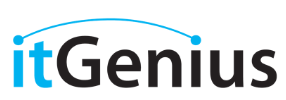How different is Google from Microsoft? Which is better: Google or Microsoft? What is Google's edge from Microsoft? Watch this video and find out the answer to these questions below.
In today's video, Peter talks about Google's distinct feature that differentiates it to its famous competitor, Microsoft.
To learn more about our Cloud Support Service, or schedule an IT Systems Check, contact itGenius - the Google Workspace Experts
Have you decided to move to Google yet? If not, contact our team for a consultation and see how we can help you.
Transcription:
G'day, guys. Pete Moriarty here and in this video, covering what is Google's biggest competitive edge over Microsoft? I'm a Googler, right? I wear the Google underpants and we've been working with the Google G Suite and Google Cloud ecosystem for a long time, but I'm often asked straight-up by clients, “Okay, Pete, we know you're biased, but, you know, what's the big thing? What's the one reason that Google better than Microsoft, or Google have more features that Microsoft? Or, you know, what's the one thing that keeps you thinking about Google rather than the Microsoft system? And what does Google really have as an edge?”
I love answering this question because I've got a really, really great analogy for answering it. I want you to think about the Microsoft ecosystem. Office, Excel, Word, Outlook, everything that's going on in the Microsoft world. Versus the Google ecosystem: Docs, Drive, Gmail, and everything in the Google Apps, G Suite, Google Cloud world, as two different cars.
I want you think as Microsoft as a regular gasoline car and I want you to think about Google as a Tesla. The reason I make this comparison is a comparison of moving parts. If you think about Microsoft, Microsoft started out as a desktop software company. When they first started building their software, of course it was for Microsoft Windows and then Macs came along and they had to develop a version of their software for Macs. And then mobile devices came along and they developed a version of their software for mobile devices.
And then Google started doing all this cool stuff in the browser and Microsoft eventually woke up and realized, “Oh, maybe we should try doing some stuff in the browser.” So they built some kind of browser-based versions of their tools as well. Not only that, but Microsoft, because primarily they're designing for the desktop, they have to have a version that works on Windows 10, a version that works on Windows 8, a version that works on Windows 7. They still have to probably support the version that works on Windows Vista as well.
Their product teams, as they're writing Outlook and as they're writing code for Word, and as they're writing code for Excel, they have to have all of these different platforms in mind, and they have to do bug testing for all those different platforms. They have to do support for all those different platforms. They have to do security updates for all those different platforms as well.
I liken that to a gasoline car because in a gasoline car, you have an electrical ignition system. You have a fuel system. You have an oil cooling system. You have a water cooling system. You have all the different bits and pieces that make up a gasoline car. You have mechanical systems like a gearbox or an automatic transmission. Then you have differentials and drivetrains and all these different parts and components to make that vehicle work.
Compare that to a Tesla. What does a Tesla have? Yes, it still has four wheels. Yes, it still has brakes and whatnot. But, you have one or two electric engines and that's about it. You don't have a gearbox drive in different gears. You don't have all kinds of ridiculous cooling systems. You don't have electronic ignition systems. It's just much simpler. There are less moving parts. There are less things to maintain, to think about, to worry about. Not only is there obviously some space-saving, apart from a big old battery in the Tesla, but there's just less things that can go wrong in terms of the motor and the engine, and the whole car being put together.
Comparing the Microsoft world with all the moving parts of a gasoline car to the Google world of a Tesla car, how does that look on the Google side of things? Well, Google only has one platform to develop for, and that's the web. Well, maybe two, if you want to count mobile devices as well. But Google only needs to get their stuff working in the web.
They're a little bit cheeky in that, most of their applications work best in Chrome, and therefore, some of the apps even aren't supported outside of Chrome. Google Hangouts doesn't really work that great out of Chrome. Gmail works best in Google Chrome. But pretty much all of the Google ecosystem works in one browser.
It doesn't matter if you're a couple of versions behind in the browser. It's probably still going to work fine. But what Google doesn't have to do is develop for Windows and for Mac and for mobile and for desktop and for online, and put out five or six different versions.
Why is that Google's secret superpower and why is that so important? It's because they can innovate so much faster. What it means is, when Google want to release product updates, rather than having a traditional software sales and development cycle, which, someone like Microsoft or Apple do, which is 12 to 18 months per major release. And that's fast, by the way. Used to be two to three years between versions. Now it's 12 to 18 months, if you're lucky.
Well, Google pushes out major updates to both the Chrome operating system and also to everything in G Suite every six weeks. It's usually a maximum of about six weeks before another major update and major iteration is pushed out.
If you're just joining this video, a quick recap: How Microsoft is like a gasoline car. Well, they have to develop for so many different platforms and so many different applications. You have your desktop applications with all the different versions of Windows. You have the Mac versions of the applications. You have the desktop, you have the mobile, you have all of their kind of pseudo web apps, which are kind of cut down versions of Outlook and Excel and World.
But with Google, they're just developing for one platform. They're developing everything in the web. There are no desktop local versions. They're just developing for the web, which means they can iterate very quickly.
So there you go. If you're interested in considering a switch from the Microsoft world over to the Google world, you know, taking up G Suite as a platform collaboration … collaboration platform and business ecosystem for your emails and your file storage and everything else, you can chat to our team. Head along to itgenuis.com. I think my shirt's probably showing up backwards for you guys, but that's cool. Itgenius.com, and chat to our concierge team about making the switch from Microsoft over to Google.
We help you keep all of your data intact, make sure you keep all of your business email addresses set up, and of course, we help with best practice training and all of the handholding required for you to make that switch.
If you're only over in the Google ecosystem and maybe you're not, you know, utilizing enough, or you don't feel like you're getting the most out of the platform, you may be interested in chatting to our team about our concierge membership. That's a unlimited IT support service where we help you not only with your G Suite but with everything IT in your business.
So either way, if you'd like some help, get in touch with our team by messaging our business page, IT Genius, or getting in touch at itgenius.com. Any questions, pop them right below this video, but until next time, I'll catch you later. Cheers.
To learn more about our Cloud Support Service, or schedule an IT Systems Check, contact itGenius - the Google Workspace Experts




